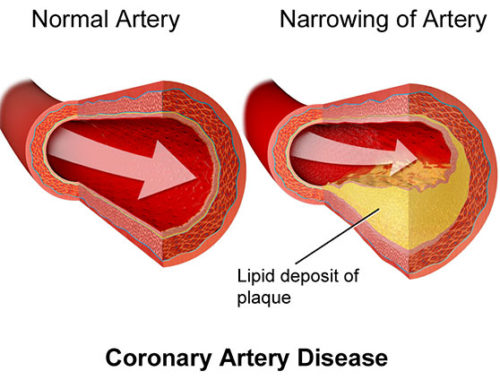
The following is one of an occasional series of articles highlighting CardioVisual’s collaborators.
Too often the first sign of coronary artery disease is heart attack or death, but a program headed by South Carolina-based Dr. Jeffrey Fine MS, PhD, aims to help healthcare providers detect this killer disease sooner, and avoid heart attacks and preventable death.
The National Heart Health Program is a network of providers who are focused on the early detection of coronary artery disease (CAD) among asymptomatic, yet at-risk, patients.
The program uses a guideline- and evidence-based approach for referring patients for the detection of asymptomatic CAD. Using the ACC/AHA/ACR guidelines developed by the American College of Cardiology, the American Heart Association and the American College of Radiology, leading cardiologists have developed the world’s most widely implemented and successful early CAD detection grogram. This program identifies CAD before the first symptoms occur, which for 50% of patients are heart attack or death.
“The National Heart Health Program invites hospitals, practices, or imaging centers wanting to implement a guideline- and evidence-based program to enhance their cardiovascular-prevention efforts and cardiovascular service line,” says Dr. Fine.
Doctors in the program utilize coronary artery calcium scoring to determine if a patient has early stage CAD without symptoms. Patients undergo a calcium score test (or heart scan), which is available at most hospitals and imaging centers. This $100, 10-minute test requires no needles, no patient prep, and no recovery time. It is done in an open CT scanner and uses new software that allows doctors — for the first time — to look at the arteries of the heart from outside the body to check for blockages that cause heart attacks.
Physicians from more than 100 prominent hospitals around the country — including Cedars Sinai in Los Angeles, Tampa Bay Heart Institute and Houston Methodist Hospital, among many others — participate in the program.
“The program reaches a large population of patients who we don’t capture well and need testing as many have significant disease,” says Dr. Matthew Budoff of UCLA Medical Center.
Finding blockages early allows many options for treatment and may prevent heart attacks from occurring. Based on the findings of the calcium score test, healthcare providers can determine the presence of CAD, and offer appropriate, life-saving treatment to patients found to be at high risk.
Who Should Have the Test?
Coronary calcium score testing is recommended by the American Heart Association and the American College of Cardiology for people aged 45-80 who do not have symptoms or known heart disease but who have one or more risk factors for heart disease such as high blood pressure, cholesterol, diabetes, family history of heart disease, obesity, or tobacco use. Doctors in the National Heart Health Program take extra care to screen their patients for these risk factors and recommend coronary calcium score testing to those who meet the criteria.
If you match these criteria, ask your doctor about whether coronary calcium score testing makes sense for you.
What Do My Test Results Mean?
Coronary calcium score results fall into 3 categories:
No Disease: Patients with a zero score should be re-tested once every 5 years and continue healthy behaviors to prevent disease onset.
Early Stage Disease: Patients with 1-399 scores need to work with their doctor to develop a medical management plan to stop the progression of the blockages. This can include lifestyle changes, diet, medications, supplements, weight loss, etc.
Advanced Disease: Patients with scores 400+ need to see a cardiologist for more detailed testing. It is important to determine how extensive the blockages are. Some patients with scores over 1000 may require a medical procedure to open up the blockages and prevent a heart attack.
It is important that your doctor review your test results with you to develop a medical management plan based on the individual results of your test.
Working together, CardioVisual and The National Heart Health Program are helping more people achieve better heart health, and saving lives along the way.
Lives saved
The results of a look at 200,000 patients who underwent the coronary artery calcium testing:
- 40% had a zero score
- 45% had early stage disease
- 15% had advanced disease